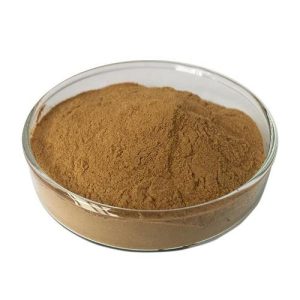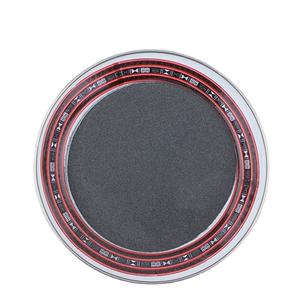Professional and high-quality metal alloys, ceramic products and concrete additives | RBOSCHCO
(Why is Zinc Stearate made of?)
Zinc stearate is a component used in cosmetics. It is made up of zinc as well as a co-stabilizing soap known as Ba-Cd. Combining these two ingredients makes plastic to be more fluid, which makes it ideal in cosmetics. Apart from being utilized as a plasticizer, zinc Stearate can be used in the cosmetics industry.
What does zinc stearate come from?
Zinc stearate is a water-resistant organometallic zinc compound, with a wide range of industrial applications. It is one of several organo-metallic compounds sold by American Elements under the brand name AE Organo-Metallics(tm). American Elements stocks zinc stearate in high purity and large volume, and it's accessible in submicron size.
Zinc stearate is used in order to enhance its physical qualities of paints as well as other coatings. It also offers lubrication to the rigid PVC compounds. It is frequently used combination along with metal stearates, such as calcium to serve as an essential stabilizer and also as alubricant. It also plays an important role in mortars as a hydrophobic material.
Zinc stearate can be found in the construction industry for a myriad of uses. Its dispersive qualities are beneficial for painting and other surfaces that are soft. It's also employed as a sanding ingredient in varnishes to help make wood smooth after sanding. It is also employed in the construction industry to improve the appearance of plasters and cement.
Officials from occupational safety and health have developed guidelines for exposure to zinc Stearate. The guidelines provide the acceptable limits of exposure and people exposed to the substance should clean their clothes and follow precautions to protect themselves. If you've been exposed to excess amounts of zinc stearate an expert for advice.
Zinc Stearate is a white, powder with a variety of industrial applications. It is employed in a variety of household products as well as an additive.
Solubility of Zinc Stearate
Zinc Stearate is an insoluble substance that is utilized in various industrial uses. It is often used in plastics as well as industries such as food production, where it is used an oil grease. It can also be employed as a sanding additive in wood coatings. It also is a component of stabilizers used in PVC.
In laboratory tests in tests, zinc stearate can be extremely irritation when it is injected into rats' lung tissue. It can cause edema, congestion and small hemorrhages inside the lung. It was discovered that the majority of rats exposed die within 24 hours of exposure while those that survived showed no changes after either 14 or 259 days.
In addition to the fact that it is used to make lubricants zinc stearate can also be used as an agent of release in the production of polyolefin. It has also been proven beneficial in the construction sector in which it is used to lubricate and as an agent to release molds made of plastic. It is water resistant making it an excellent anti-sticking agent for rubber and plastics.
Zinc stearate is a light hydrophobic powder, with a light distinctive scent. Insoluble in water,, however easily soluble in acid. It may vary in its zinc content with those that have lesser zinc being less acidic. Zinc Stearate isn't flammable, however it is combustible and insensitive to weak acids as well as the oxidizing agents. It also emits sharp gases when it is heated.
In spite of its solubility Zinc Stearate is extensively employed in a variety of industrial applications, from cosmetics to electric batteries.
Is zinc stearate water soluble?
Zinc Stearate is a white, substance that's insoluble with water. It is liquid in organic solvents that are hot, however, it is insoluble within water. When it comes in touch with acids, it breaks down into stearic acid , and the its salts. When dry the zinc stearate may be ignited. It has hygroscopic characteristics and is extensively used in various industries. It is available in a variety of forms, such as capsules, tablets as well as powder. It has a white hue and an odor that is distinctive.
This chemical is utilized in a range of industrial applications, such as a mold removal agent. Zinc stearate can also be used by cosmetic professionals as polishing agent. It also helps improve your surface's resistance to moisture. It is also employed in cosmetic and inks based on water. products.
Another benefit of zinc stearate is to serve as an additive to painting and for rubber. It assists in making the mixture homogeneous and allows it to mix. It can also be a valuable fluid for lubrication in metal forming as well as in the finishing of surfaces. It also functions as a water-proofing agent.
Zinc Stearate is an insoluble metallic salt that has a non-polar molecular structure. It is easily soluble in warm solvents however it is insoluble with polar solvents. It is also very well-soluble with chlorinated hydrocarbons. It is used extensively as a in the fields of heat stabilizer, lubricant also a release agent, in the cosmetics sector.
Zinc stearate can also be employed in the rubber and plastics industry. Its white powder does not have a apparent sand-like appearance, nor does it have any fat smell, and can be easily absorbed by skin. It is safe to usage in numerous applications, including pharmaceuticals and food.
About RBOSCHCO
RBOSCHCO is a trusted global chemical material supplier & manufacturer with over 12 years experience in providing super high-quality chemicals and Nanomaterials. The company export to many countries, such as USA, Canada, Europe, UAE, South Africa, Tanzania,Kenya,Egypt,Nigeria,Cameroon,Uganda,Turkey,Mexico,Azerbaijan,Belgium,Cyprus,Czech Republic, Brazil, Chile, Argentina, Dubai, Japan, Korea, Vietnam, Thailand, Malaysia, Indonesia, Australia,Germany, France, Italy, Portugal etc. As a leading nanotechnology development manufacturer, RBOSCHCO dominates the market. Our professional work team provides perfect solutions to help improve the efficiency of various industries, create value, and easily cope with various challenges. If you are looking for Zinc stearate, please contact us or send an email to: tech@nanotrun.com
(Why is Zinc Stearate made of?)








